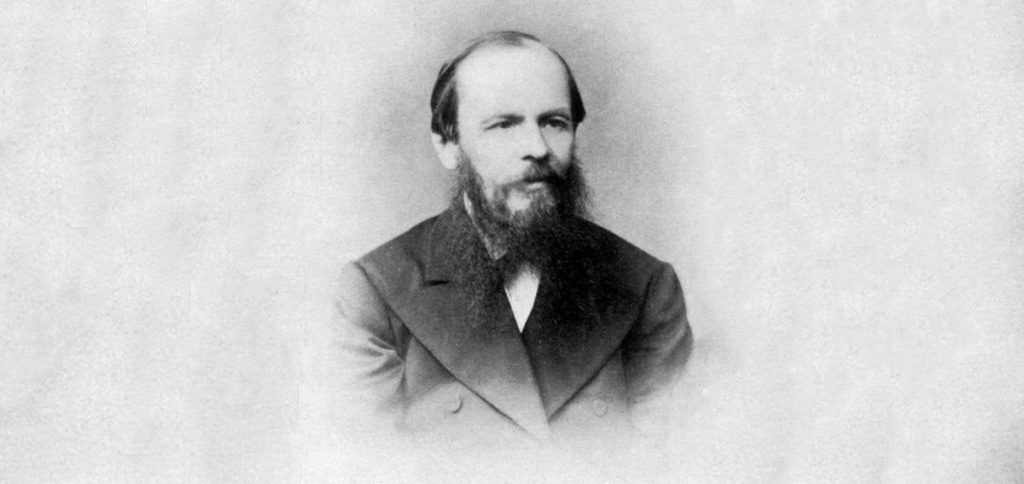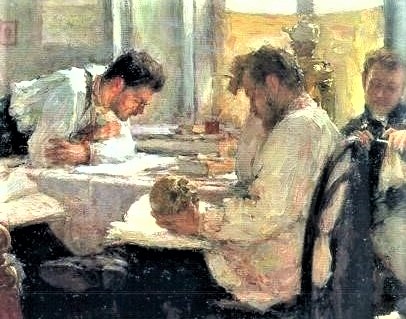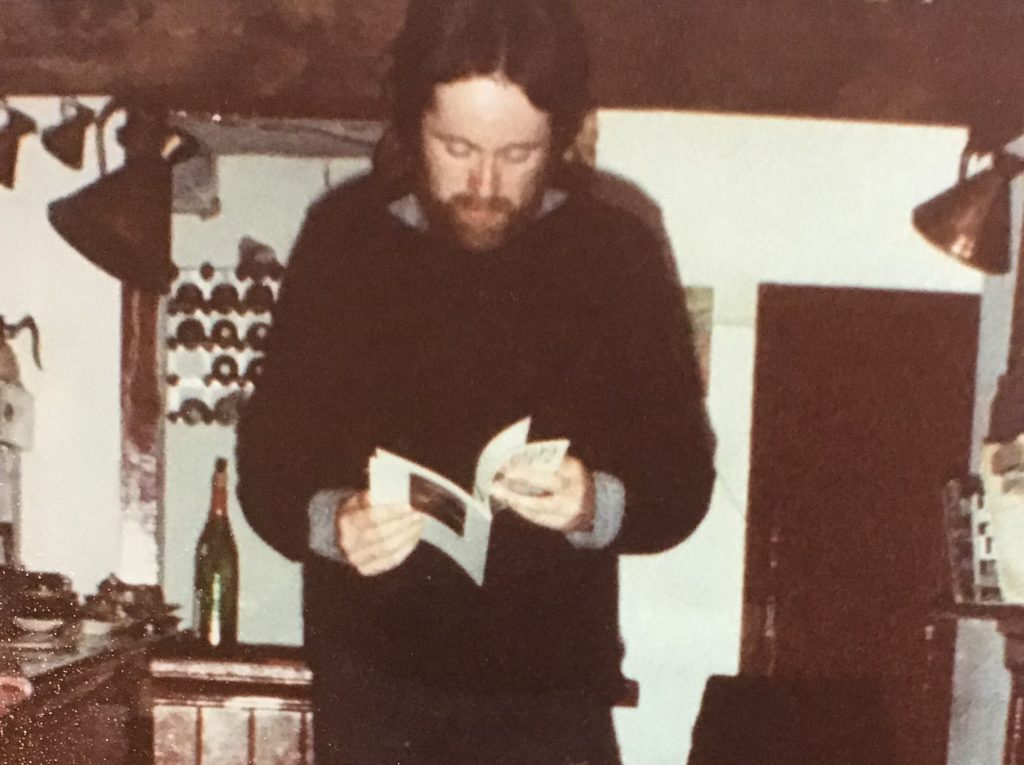Essay | Rediscovering Violette Leduc by Isabelle Marie Flynn
Most bibliophiles will name Simone de Beauvoir, George Sand and Colette among the greats of French literature. Yet they represent the tip of a subversive, transgressive and deeply political iceberg of women writers who have changed the literary and social landscape. As women’s voices grow louder and more diverse in modern publishing, it is vital to recognise that their writing is not new, nor has it just now become important. The words of women are sadly more […]
Essay | The Fate of the Artist: Wyndham Lewis and Saul Bellow by Jeffrey Meyers
Wyndham Lewis’s adult life spanned two world wars. In the First he fought on the front lines and was also a war artist; in the Second he lived in poverty in America and Canada. An innovative painter, he wrote fierce polemics on art and the role of the artist in society but held a bleak view of modern life. Auden called the self-styled ‘Enemy’ and conservative advocate of western culture ‘That lonely old volcano of the Right.’ Lewis idealistically believed that the power of […]
Essay | The Ring by Tomoé Hill
I still have my wedding ring – platinum with a pear-shaped, grass-green tourmaline, and small diamond baguettes flanking either side, facets refracting both light and superficial values. Sometimes I take the cursed object from its black octagonal leather box with the gold bird on the lid, wondering what illness it slowly introduced to me in the guise of joy. ‘Green stones are bad luck,’ said a friend of my then-fiancé, on admiring my ring. It was automatic; one of […]
Essay | The Eccentricity of Lydia Davis’s ‘Essays’ by Eliza Haughton-Shaw
Ironic, self-conscious and full of weird humour, in Lydia Davis’s hands the short story is economical to the point of obsession. Having published short fiction as well as translations for many years, she came to widespread attention with the publication of The Collected Stories of Lydia Davis in 2007, for which she won the International Man Booker in 2013. While Davis remains less well-known outside the United States, for readers familiar with […]
Essay | Books That Changed My Life: ‘Tales from Ovid’
‘I don’t get poetry.’ It’s a miserable cliché, but generation after generation takes it to heart. In fact, as a teenager studying for my GCSEs, I believed it myself. Still sporting K-Swiss trainers and a swooping Justin Bieber fringe long after it was a good look (if it ever was), I was stuck in my old ways. I was a novels person, I thought — poems were too brief to affect me deeply or really sear themselves onto my psyche […]
Fiction | ‘Notes from Underground’ and Dostoevsky’s existentialism
Dostoevsky’s literary legacy lies not so much in the style of his novels as in the characters that inhabit them. His characters drive narrative forwards and fulfill their plot function yet are also miraculously idiosyncratic. It is this which makes them so resonant: their apparent freedom of will that so often leads to tragedy. Whether it is the Byronic heroism of Raskolnikov or the troubled Ivan Karamazov, Dostoyevsky is interested in egoism and irrationality in the human condition […]
Essay | The Moving Finger: Edward FitzGerald and the consolation of Omar Khayyam by James Tarik Marriott
It is bad practice to search for a single moment in the life of an artist for explanation of their greatest work, but for Edward FitzGerald such a moment calls out for itself. In 1856 Edward Byles Cowell, FitzGerald’s companion and close friend, decided to leave for India following his graduation from Oxford to pursue a professorship in Calcutta. Up until this point in his life FitzGerald had been listless, finding little to enthuse him […]
Essay | An argument for theatres by Amber Massie-Blomfield
The last show I saw before lockdown was Love Love Love at the Lyric Hammersmith. 500 of us were in that room; all gathered together to do what, in my pre-quarantine life, I used to do two or three times a week. I didn’t hug my friend when I met him at the start of the evening. It was the beginning of March and what constituted acceptable public behaviour seemed to shift on an hourly basis. We touched elbows. ‘This is probably the last theatre show we’ll ever see,’ […]
Essay | How to Run a Queer Reading Series at a LDN Arts Institution by Isabel Waidner
Queers Read This is an ongoing reading series started independently by artist Richard Porter and myself at the Horse Hospital in London in 2017, and co-run with the Institute of Contemporary Arts (ICA) since. Quarterly events feature readings of texts which work across intersectional systems of oppression, and challenge formal distinctions between prose and poetry or critical and creative writing. Themes range from pansies and twink mysticism […]
Essay | Wholly Communion by Scarlett Sabet
On June 11th 1965, over 7,000 people filled the Royal Albert Hall for four hours, smoking, applauding and listening to men that would soon become myth: Allen Ginsberg, Lawrence Ferlinghetti, Adrian Mitchell, and Gregory Corso were just some of the poets that performed that night at the International Poetry Incarnation. It was a counter-culture ‘happening’ in one of London’s most affluent boroughs, the Royal Albert Hall itself a testament to the power and wealth of the old British Empire […]
Essay | Layli and Majnun: Romeo and Juliet of the East by Joobin Bekhrad
When it comes to love stories, none are as well known in the English language as Shakespeare’s Romeo and Juliet. In Iran and elsewhere in the Persian-speaking world, however, another pair of star-crossed lovers reigns supreme. Lord Byron, who enthused over ancient Iran in Childe Harold’s Pilgrimage, called Nezami Ganjavi’s Layli and Majnun ‘the Romeo and Juliet of the East’. Though given to exaggeration, this was no exaggeration on Byron’s part […]
Essay | Reflections on Orwell’s Coming Up for Air by Patrick Maxwell
“Call it peace, if you like. But when I say peace I don’t mean absence of war, I mean peace, a feeling in your guts. And it’s gone for ever if the rubber-truncheon boys get hold of us.” What moves us about this passage? It is not particularly difficult to know which literary world we are in, which part of history we are being exposed to, and even which author is speaking […]
Essay | W. W. Jacobs’ The Monkey’s Paw, Revisited by Vidhi Sood
A cold, rainy night in February was apt for revisiting W. W. Jacobs’ 1902 short story, ‘The Monkey’s Paw’, first published in the collection The Lady of the Barge. Set in imperial Britain, the story endures as a spine-chilling classic of genre fiction; one which explores the folly of dabbling with the supernatural, darkness in its many forms, and the threat of the outsider.A non-commissioned officer, on leave from India, visits an elderly couple and their son. That evening he reveals […]
Essay | Dostoevsky and Poor Folk by Patrick Maxwell
Wilfred Owen captured the national spirit best when he talked of the ‘drawing-down of blinds’, surely the most succinct depiction of English melancholia. The English spirit – distinct from of Britishness, though also a part of it – is one of deep decline under the shadow of former empire. It is the spirit of T. S. Eliot’s line ‘winter’s afternoon | In a secluded chapel’ in ‘Little Gidding’; of the quiet introit sung by an evensong choir, backing away into the cathedrals’ dingy corners […]
Essay | Kafka & Camus by Jeffrey Meyers
It is odd that the two book-length studies of Albert Camus’ The Stranger (1942), by English Showalter and Alice Kaplan, do not discuss the profound influence of Franz Kafka’s The Trial (1925). Other critics have emphasized, denied or deplored this influence. Herbert Lottman notes that while writing his novel Camus ‘had read and reread Kafka, whose work seemed to him prophetic, one of the most significant of our time.’ The critic Jean Paulhan – thinking of Hemingway’s simple sentences […]
Essay | Reflections on The Brothers Karamazov by Patrick Maxwell
In his masterpiece, Enemies of Promise (1938), Cyril Connolly distinguishes between two different styles of writing, which he terms as the ‘Mandarin’ and the ‘Vernacular’. In the former group: Edward Gibbon, Virginia Woolf, and James Joyce; among the latter: William Hazlitt, George Orwell, and Christopher Isherwood. Fyodor Dostoevsky is a writer of neither groups […]
Essay | Vonnegut’s ‘Black Humor’
I had made her so unhappy that she had developed a sense of humor, which she certainly didn’t have when I married her . . . This line from Bluebeard’s narrator remarks on another kind of humor, the black humor Vonnegut is best known for. Its source is helplessness and despair. He explains: Laughter or crying is what a human being does when there’s nothing else he can do […]
Essay | Proust’s Secrets Revealed
Marcel Proust and his oeuvre are at once overexposed and mysterious. Entire books and studies have explored the minute details of his personal life and literary work. There is a book about what cures and medications he took specifically for his insomnia. There is a hundred-page academic study dedicated solely to the eight-word first sentence […]
Essay | On Angela Carter by Sharlene Teo
I was thirteen when I first encountered The Bloody Chamber, back in the humid and claustrophobic childhood bedroom that I shared with my older sister in Bukit Timah, Singapore. I remember idly scanning my sister’s bookshelf; plywood, festooned with glow-in-the-dark plastic stars. I spotted a bent orange spine on the second shelf […]
Essay | Becket back in the cathedral
Great drama has a way of always being relevant whenever it is performed, even if, like T. S. Eliot’s Murder in the Cathedral, it isn’t performed very often. The play is, of course, about the assassination of Thomas Becket, but with undertones of the shadow of Fascism over Europe. Next year sees the 850th anniversary of the event […]
Essay | Tony Harrison: Poetry & Class
News | Caoilinn Hughes, on winning the Collyer Bristow Prize 2019
Essay | A Dream of Maps: Notes from a Book Launch Tour, June 1981 by Chris Rice
Chris Rice first met Matthew Sweeney at a poetry workshop in London in 1976, and they remained friends for forty-two years until Matthew’s death in 2018. Chris Rice’s elegy to Matthew and their long friendship […]
























